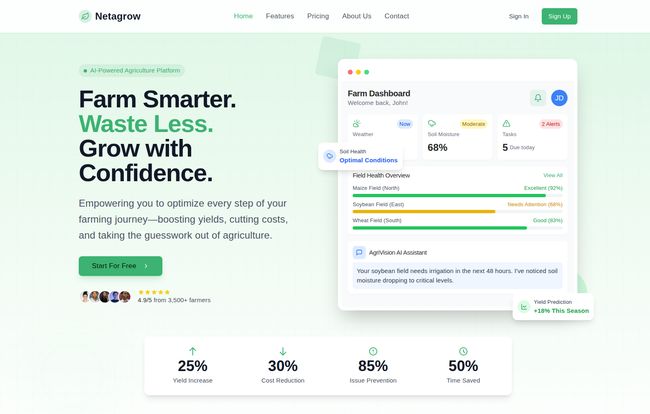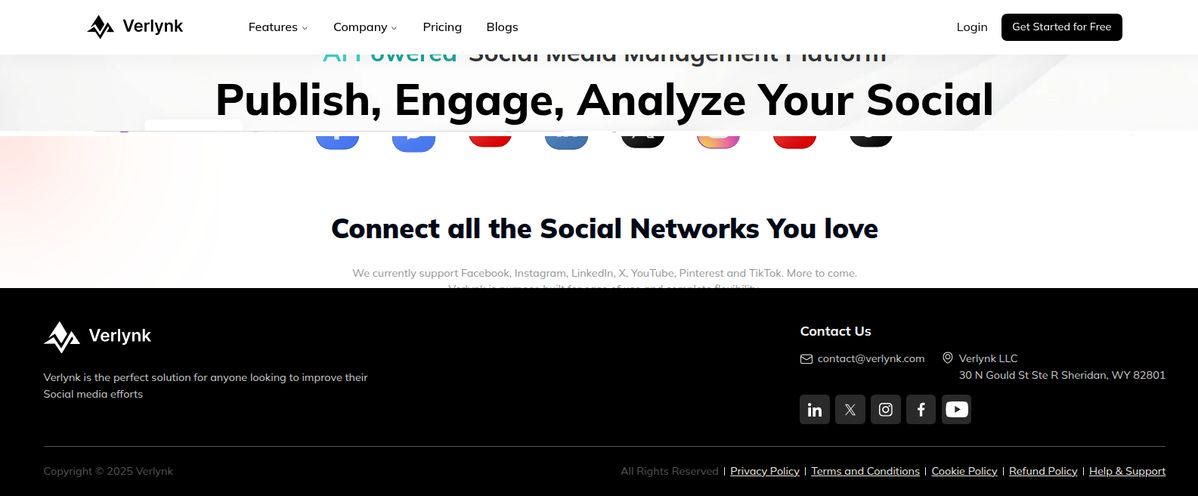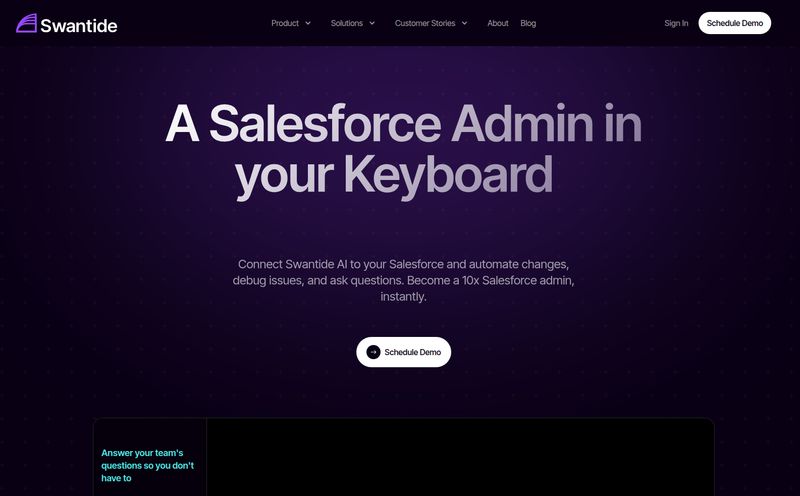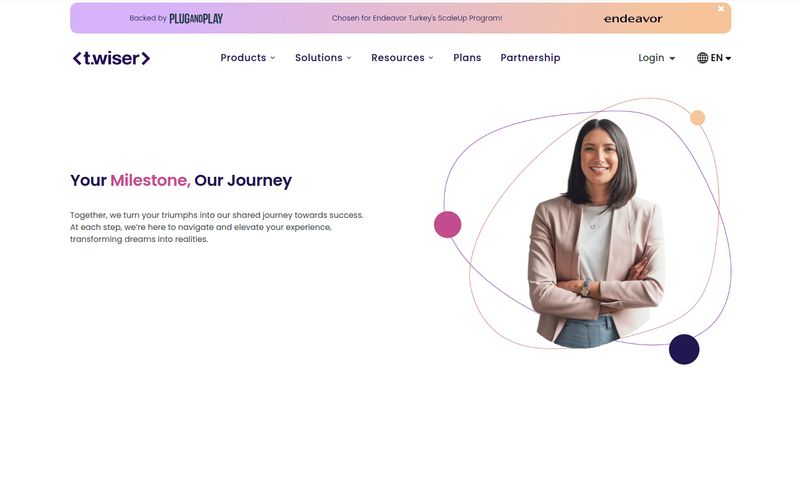I’ve spent years neck-deep in the world of SEO, traffic, and digital platforms. I’ve seen trends come and go, and I've seen countless apps promise to 'revolutionize' an industry. So, when I first stumbled upon Netagrow, an AI-powered agricultural platform, my professional skepticism immediately kicked in. Farming? With AI? It sounds like something out of a sci-fi movie.
But farming has always been about data, hasn't it? My grandad used to keep these meticulous notebooks—scribbles about rainfall, when he planted, what the yield was like. He was collecting data, just with a pen and a prayer. He was trying to turn guesswork into a calculated science. And when you look at it that way, a platform like Netagrow starts to make a whole lot of sense. It’s just the 21st-century version of my grandad’s notebook, but with a brain a whole lot bigger than ours.
So, is this tool the real deal or just another piece of shiny AgTech vaporware? Let's dig in.

Visit Netagrow
So What Exactly Is Netagrow?
At its heart, Netagrow is an agricultural management platform that uses artificial intelligence to give farmers a leg up. Think of it as a central command center for your entire farm. Instead of juggling a weather app, a notebook for tasks, and a separate service for soil testing, Netagrow aims to bring it all under one digital roof. The big promise here is to take the guesswork out of farming by providing personalized guidance based on your specific location, climate, soil, and crops. It’s about making smarter, data-driven decisions instead of just relying on tradition or a gut feeling.
The whole idea is to boost your yields, cut down on waste (and costs), and make farming a bit more predictable in a world that’s anything but.
A Look Under the Hood at Netagrow's Features
A platform is only as good as its tools. I’ve seen plenty with a pretty interface and not much else. Netagrow, I have to say, seems to have some serious substance. It isn’t just one thing; it’s a whole toolkit.
Your Personal AI Agronomist
This is the star of the show. The AI-powered intelligence. The platform gives you yield predictions, which is like having a crystal ball for your harvest. Even more impressive is the pest and disease recognition. The images show a feature where you can apparently scan a leaf with your phone, and the AI will identify what's wrong and suggest a treatment. For a smallholder farmer who might not have easy access to an agronomist, this is a game-changer. It’s proactive, not reactive.
Keeping a Close Eye on Crop and Soil Health
Here’s where it gets really granular. The platform offers advanced soil health analytics, monitoring key metrics like nutrients (NPK), moisture levels, pH, and electrical conductivity. Why does this matter? Because it means you can apply fertilizer and water with surgical precision instead of the 'spray and pray' method. That saves money and is better for the environment. This, combined with the smart crop monitoring, gives you a real-time health report card for your fields.
Smart Weather and Field Management
Every farmer I know is obsessed with the weather. Netagrow integrates smart weather analysis and forecasts, sending you alerts for things like potential frost or a coming heatwave. This helps you protect your crops or adjust your irrigation schedule. You can also map out your fields within the app, which helps organize and monitor different plots or crop types separately. It’s the kind of organization that moves a farm from a chaotic operation to a well-oiled machine.
The Human Element: What Are Real Farmers Saying?
Okay, the features sound cool. But does it work in the mud and the sun? The site highlights testimonials, and there's a clear focus on transforming agriculture in Africa. They feature farmers from places like Zambia, and they list partners like the Alliance for a Green Revolution in Africa (AGRA) and the Mastercard Foundation. This isn’t just some Silicon Valley startup guessing what farmers need; there seems to be a genuine effort to build a tool for a specific, and often underserved, community of smallholder farmers. I find that pretty compelling. It gives the whole project a sense of purpose.
The Good, The Bad, and The Realistic
No tool is perfect. Let's be real. From what I can gather, here’s a balanced look at Netagrow.
On the plus side, the potential for data-driven farming is immense. The user interface looks clean and user-friendly, and having everything in a mobile app is crucial since farming doesn't happen at a desk. The personalized guidance could genuinely increase yields and reduce costs, which is the bottom line for any farming business.
However, we have to consider the potential downsides. This is a tech platform, so it relies on a decent internet connection, which can be spotty in some rural areas. There's probably a learning curve, as with any new software. And the biggest unknown is the accuracy. The AI's predictions are only as good as the data they're fed. Then there's the cost of the platform subscription and any necessary IoT sensors, which brings us to the next big question...
So, How Much Does Netagrow Cost?
This is the part where I have to shrug my shoulders a bit. After looking through the site, there’s no public pricing page. This is a common strategy for B2B or specialized platforms, as costs can vary based on the size of the farm, the specific features needed, and the number of sensors. While I always prefer transparent pricing, it's not a dealbreaker. It just means you'll have to reach out to their team directly to get a quote. My advice? Go in with a clear idea of your farm's size and what problems you're trying to solve so you can get the most accurate information.
Frequently Asked Questions about Netagrow
Do I need to be a tech expert to use Netagrow?
Based on the interface shown, it seems designed to be user-friendly. While there might be a small learning curve, it appears to be built for farmers, not IT specialists. The mobile-first approach suggests ease of use is a priority.
How does the AI pest and disease detection work?
It likely uses a computer vision model. You take a photo of a plant's leaf, and the AI compares it to a massive database of images of known plant diseases and pests to find a match and provide a diagnosis and treatment suggestion.
Is Netagrow suitable for small farms?
Yes, absolutely. In fact, their messaging and partnerships seem specifically focused on empowering smallholder farmers, particularly in regions like Africa. The platform is designed to scale from small plots to larger operations.
What if I have a poor internet connection on my farm?
This is a valid concern. While real-time data syncing would require a connection, many modern farm apps are designed to have offline capabilities. You could likely input data in the field and have it sync later when you're connected to Wi-Fi. You would need to confirm this with their support team.
What kind of support can I expect from Netagrow?
While not explicitly detailed, a platform this specialized typically offers customer support through email, phone, or a chat service to help with setup, troubleshooting, and getting the most out of the features.
My Final Verdict on Netagrow
So, is Netagrow the future of farming? I think it’s a very promising glimpse of it. The days of farming being purely about intuition and back-breaking labor are fading. The future is about blending that hard-won experience with smart technology. Netagrow isn't about replacing the farmer; it’s about empowering the farmer with better tools.
It packages some of the most powerful concepts in modern agriculture—precision irrigation, soil monitoring, AI-driven insights—into something that looks accessible and genuinely useful. If they can deliver on their promises, especially for the smallholder farmers they're targeting, Netagrow could be more than just a cool platform. It could be a truly valuable partner in growing our world's food. And that's something worth getting excited about.



